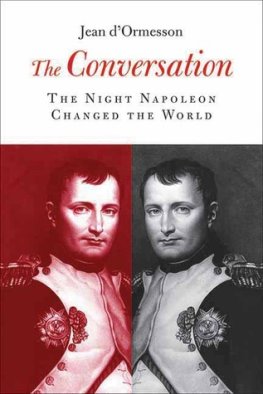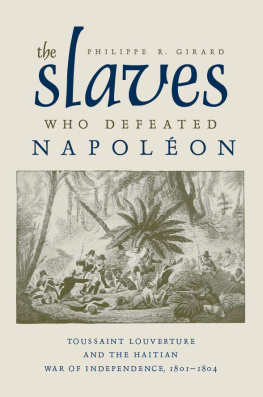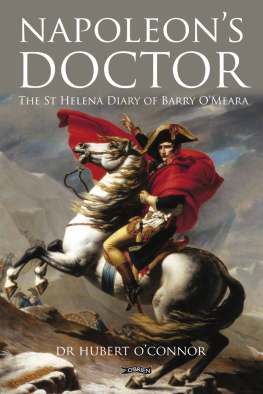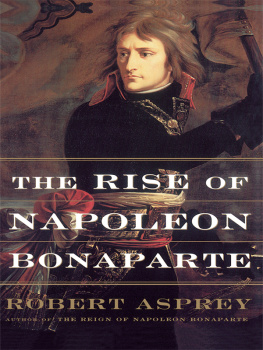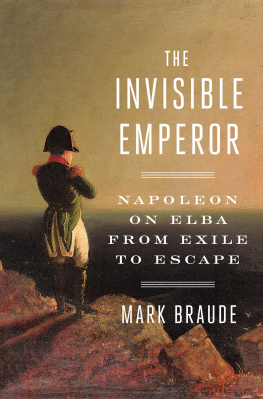This edition is published by PICKLE PARTNERS PUBLISHING www.picklepartnerspublishing.com
To join our mailing list for new titles or for issues with our books contact@picklepartnerspublishing.com
Text originally published in 1894 under the same title.
Pickle Partners Publishing 2013, all rights reserved. No part of this publication may be reproduced, stored in a retrieval system or transmitted by any means, electrical, mechanical or otherwise without the written permission of the copyright holder.
Publishers Note
Although in most cases we have retained the Authors original spelling and grammar to authentically reproduce the work of the Author and the original intent of such material, some additional notes and clarifications have been added for the modern readers benefit.
We have also made every effort to include all maps and illustrations of the original edition the limitations of formatting do not allow of including larger maps, we will upload as many of these maps as possible.
NAPOLEON AT HOME
THE DAILY LIFE OF THE EMPEROR AT THE TUILERIES
BY
FRDRIC MASSON
TRANSLATED BY
JAMES E. MATTHEW
WITH TWELVE ILLUSTRATIONS BY R. DR MYRBACH
VOL. I.
INTRODUCTION
THE portrait of such a man as Napoleon is not painted at the first attempt. One study does not suffice, nor does one canvas. To attempt, after the lapse of almost a century, to represent so difficult a model with at least some appearance of truth, it is necessary to become imbued with his personality under every aspect which it assumes, according to the time of the day and the variation of the light; to neglect none of those methods of procedure which tend to the acquisition of a portion, however slight, of the actual truth: to study each line, to detail each wrinkle, to photograph each surface and each curve of the countenance; and to relax the work only when it has been carried as far as the resources of art and the most scrupulous attention will allow. For the accessories, and for each one of them, the same labour is required; they must be isolated, and the construction of each one separately investigated; they must be dissected, for in each he has probably included something of himself; they must be grouped together, for it is essential that he should be placed in his own surroundings, and move in his own atmosphere. These are the sketches which a painter, careful of the truth, must fill in before approaching his canvas. At a later time, perhaps, he will attempt to combine all these slight and scattered works in order to construct the portrait he dreams of, but for this, conscientiousness and application will not suffice. In vain he will endeavour to combine his studies, yet never will he succeed in representing as he conceived it, illumined by the glory which flashes from it, the sovereign image of him who among men was the nearest approach to that which is called a God. Possibly even he will never attempt it, so weak does he feel his effort, and so unequal to the task his power; but these studies which he has prosecuted with absolute sincerity, he may hope will preserve in the eyes of the public their truth and their characterisation, and that they will at a later time furnish some one more skilful with the features and expression of nature, and it is for this reason, knowing that life is short, that he sends them forth from his studio and exhibits them.
Such is the scope of these volumes. They have no pretension of offering the last word on him about whom history will occupy itself unceasingly; their aim is simply to fix certain guiding-marks, and to bring into prominence certain characteristic facts. Before every attempt at synthesis, it is by a succession of analyses, slow, accurate, and minute, that we must proceed, and these volumes contain, according to the term used in Germany, no more than contributions to history.
In a previous volume I attempted to define the extent and nature, in the case of Napoleon, of his taste and feelings towards woman; how far his senses affected him, how far his feelings might have been modified either by education or by his exercise of supreme power; how he was affected outwardly and inwardly by that strongest of all passionsLove. I shall attempt later to determine how far he was acted on by the hereditary notions of family feeling, the developments he gave to them, and how far he yielded or resisted them; for it is this feeling which, after love, is the least conventional, the one which man holds most directly from nature. Afterwards I shall investigate the treatment he adopted towards his fellow-creatures, women in particular; what lot he assigned to them, what duties he traced out for them, what relations he had with them, apart from love; for woman is the principal bond of all civilised society, and the social being which man is, only becomes intelligible and definite by his relations with women.
Side by sideand this is the aim of another series of investigations, of which I publish here the first instalmentI propose to give a detailed account of the habits and the rule of life which Napoleon laid down for himself, to describe his dwelling with exactness, to follow him about in it for a whole day, from morning to evening, in such a manner that the reader may be able to arrive at clear ideas when he is spoken of, so that he may figure him, if not as he was actually, at least as it is permissible, after a century, to suppose he was.
Having thus described the daily round of this existence, it will be necessary later to describe the entertainments and the pleasures which the Emperor gave to his Court rather than to himself,the plays, the concerts, the balls; and then to make the retinue of public appearances pass before us, and to display the whole pomp of the ceremonies. It will be necessary, again, to descend to the trifling details of the organisation of the Imperial household, to call to life again the crowd of chamberlains, equerries, masters of the ceremonies, officers of the hunt, and prefects of the palace; to show whence these people come, and whither they go; how they are recruited, what money and what honours they received, and in what way they paid their debt of gratitude. Finally, leaving Paris, it will be necessary to follow the Court in its small and great journeys to Fontainebleau, to Compigne, to Rambouillet, and then to those distant residences which the Imperial constitutions fixed in different points of the Empire. An account must be given of his habits and his character; his attire and his pleasures must be described, and the ultimate forms which the Imperial monarchy gave to the country trips of a sovereign must be noted.
Such is a part of the work undertaken, that which, at the present time, seems to the author to be so far advanced that it is not being too bold to announce the plan. He disguises neither the difficulties nor the trouble. To clear up each of the points which he studies successively, he should isolate it and examine it through the microscope. From such a course, no doubt, will result a distorted enlargement which may lead the reader to take a part for the whole, and to make up his mind before all the elements of conviction have been put before him. In closely grouping facts which, spread over a whole life, possess but a moderate importance, we lend to them a seriousness and a connection which they do not really possess. Take the chase, for example. It is attempted in a book to give an account solely of Napoleon as a sportsman; the author must enter into the details of the organisation of the chase; he must have collected the most trifling incidents of each run, have related from the detailed account each whoop; he must follow the Emperor in his shooting parties, setting down the list of each, with the names of the guests and the number of guns. That would be the subject undertaken, and it would be his duty to exhaust it. But when he came to the end of the volume the reader might run away with the notion that during all his life Napoleon did nothing else than hunt, at the very time when he was probably occupied with something quite different.





